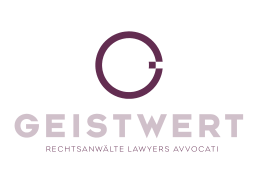For a long time the praxis on standard-essential patents has applied the rules of the German Orange-book decision. Until the ECJ has now issued its LTE-judgment in a litigation between Huawei and ZTE.
An action for a prohibitory injunction against an alleged infringer by the proprietor of a standard-essential patent which holds a dominant position may constitute an abuse of that dominant position in certain circumstances.
In particular, where the proprietor of the patent has undertaken in advance to grant third parties a licence on fair, reasonable and non-discriminatory terms (FRAND), that proprietor must, before it before suing for injunction relief present to the alleged infringer a specific offer to conclude a licence.
EU law seeks to safeguard the exercise of exclusive rights linked to an intellectual-property right, such as a patent, while at the same time maintaining free competition. The ECJ has already clarified that the exercise of such exclusive rights (such as the right to bring an action for infringement) forms part of the rights of the proprietor, with the result that the exercise of that right, even if it is the act of an undertaking holding a dominant position, cannot in itself constitute an abuse of a dominant position. It is only in exceptional circumstances that the exercise of the exclusive right may give rise to such an abuse.
However, the situation a ‘patent essential to a standard’ (a ‘standard-essential patent’ or ‘SEP’), that is to say, a patent the use of which is indispensable to all competitors who envisage manufacturing products that comply with the standard to which it is linked, is different. The patent obtained SEP status only because its proprietor gave an irrevocable undertaking to the standardisation body that it is prepared to grant licences to third parties on fair, reasonable and non-discriminatory terms (FRAND terms).
Huawei is the proprietor of at least 1 of 4.700 patents essential to the ‘Long Term Evolution’ standard (LTE). At the time of that notification, Huawei undertook to grant licences to third parties on FRAND terms.
Huawei brought an action for infringement of its patent against the ZTE group. That group markets products that operate on the basis of the LTE and thus use Huawei’s patent without paying Huawei a royalty. By its action, Huawei was seeking an injunction prohibiting that infringement, the recall of products, the rendering of accounts and an award of damages. Previously, Huawei and ZTE had engaged in discussions concerning the infringement and the possibility of concluding a licence on FRAND terms, without, however, reaching an agreement.
In its judgment C-170/13 of July 16, 2015, the Court distinguished actions seeking a prohibitory injunction or the recall of products from those seeking the rendering of accounts and an award of damages.
With regard to cease and desist actions, the Court held that the proprietor of a patent essential to a standard established by a standardisation body, which has given an irrevocable undertaking to that body to grant a licence to third parties on FRAND terms, does not abuse its dominant position by bringing an action for infringement seeking an injunction prohibiting the infringement of its patent or seeking the recall of products for the manufacture of which that patent has been used, as long as:
‒ prior to bringing that action, the proprietor has, first, alerted the alleged infringer of the infringement complained about by designating the patent in question and specifying the way in which it has been infringed, and, secondly, presented to that infringer, after the alleged infringer has expressed its willingness to conclude a licensing agreement on FRAND terms, a specific, written offer for a licence on such terms, specifying, in particular, the royalty and the way in which it is to be calculated, and
‒ where the alleged infringer continues to use the patent in question, the alleged infringer has not diligently responded to that offer, in accordance with recognised commercial practices in the field and in good faith, this being a matter which must be established on the basis of objective factors and which implies, in particular, that there are no delaying tactics.
The Court has held, inter alia, that the alleged infringer which has not accepted the offer made by the proprietor of the SEP may invoke the abusive nature of an action for a prohibitory injunction or for the recall of products only if it has submitted to the proprietor of the SEP, promptly and in writing, a specific counter-offer that corresponds to FRAND terms.
With regard to actions for damages, the Court to a different position: It held that the prohibition of abuse of a dominant position does not prevent an undertaking in a dominant position from bringing an action for infringement against the alleged infringer of its SEP with a view to obtaining the rendering of accounts in relation to past acts of use of that patent or an award of damages in respect of those acts of use. Such actions do not have a direct impact on standard-compliant products manufactured by competitors appearing or remaining on the market.
Although the present judgment did certainly not facilitate the life of SEP-holders, it opens some interesting strategic options.
